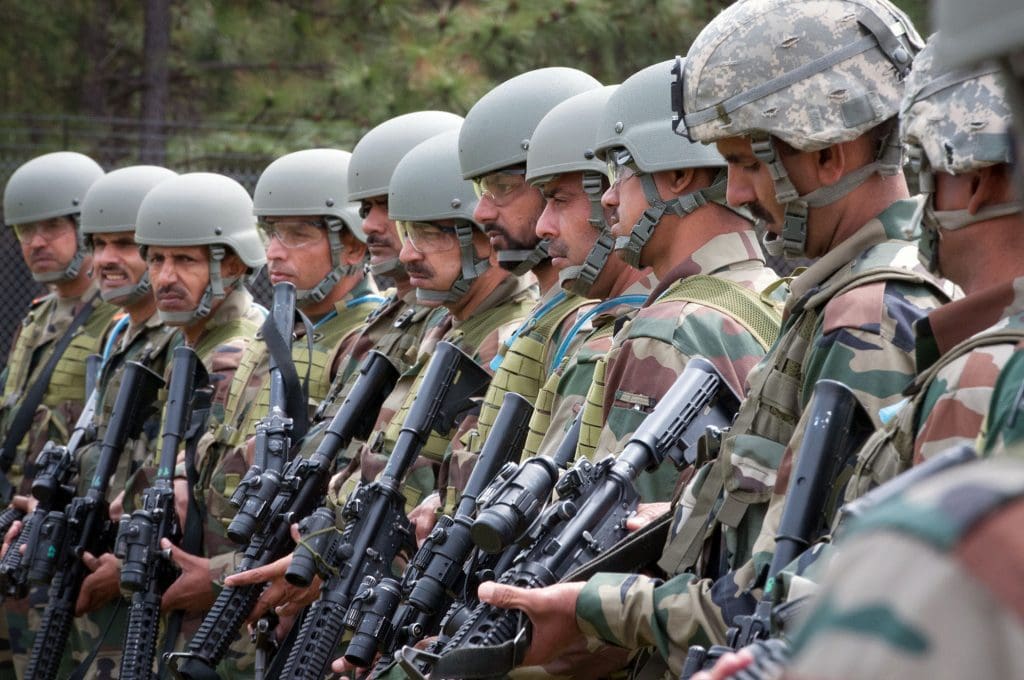
India made headlines on the first of December as it expressed its resentment when the OHCHR (Office of the United Nations High Commissioner for Human Rights) conveyed its concern on the arrest of Kashmir’s prominent human rights defender Khurram Parvez and the recent killings in Indian Administered Kashmir. He has been shifted to Tihar jail.
It elaborates on how the Jammu and Kashmir Public Safety Act, 1978 (PSA) or the Unlawful Activities (Prevention) Act have been weaponised and are an ‘ultra vires’ operating on a very vague and dubious criterion of ‘terrorism’. Which is then maliciously exploited to smother voices of retaliation by ruthless extrajudicial killings and unjust imprisonment. The narrative has shifted to extend and strengthen this approach towards counter-terrorism.
This includes the whole debacle of scholarly debates like “Are human rights a stumbling block in fighting evils like terrorism & Naxalism?” for which the National Human Rights Commission of India recently came under fire for. To provide some context to this outrageous subject, there is a history of such ‘scholarly’ debates (on human rights for paramilitary forces) since 1999. First prize winner of NHRC’s debate competition, Devesh Tripathi, Asst. Commandant, CISF, gave a speech on the lines of how displaying “leniency” and being “sparing” is taken advantage of by these “terrorist militant groups.” The inability and futility of NHRC were talked about by Madan Lokur, former Judge of the Supreme Court of India. Lokur called for the abolishing of such bodies purely for their inefficacy. Even when horrifying ‘encounter killings’ of civilians came to light, the commission resorted to more important things to do like wrangle and display its appalling naïveté.
The heightened atmosphere of aggression that already follows the disputed and ravaged region of Kashmir has been stoked by militancy. The government data already claims upwards of 30 civilians being killed this year.
The idea of a dichotomy is constantly imposed on us i.e. either you condone terrorism or you stand against it in a nationalistic way. Hence, we are conditioned to be more inclined towards censorship/crackdown and the nefarious use of draconian laws to curb the evils that curse our blessed land. This is also concealed with a blind trust in law enforcement – decimations are often rebutted with questioning the innocence of the victims or alleging unsubstantiated claims of them being associated with ‘militant’ groups. The recent Hyderpora killings where 4 civilians died were one such example.
The bodies of civilians were used as human shields.
“When we protested and asked a police official, ‘Uncle, give my father’s body, he laughed shamelessly. I froze and did not know how to respond. How could they kill our father, and bury him so away from us?”
Naifa, 13, daughter of the slain businessman Altaf Ahmad Bhat
These bold atrocities are often staged as ‘encounters’ and it gives them the ground to dodge moral and political accountability.
Every time we come across how our jawans were martyred in the crossfires of these operations, the immediate narrative that follows from our media makes us seethe and seek some form of vindictive justice as a cathartic treat. This, in turn, leads to the proliferation of the presence of armed forces in the area, that is ready to strike – a Sisyphean journey to reintegrate Kashmir ‘peacefully’. We’re stuck in a vicious cycle of continuously alienating their community and then crying in despair when we’re met with a rebellion. Instead of reforming our strategies, blame-shifting and absolution of its current flaws is a very commonly used deflection tactic.
The current policy is so staunchly supported that it will be used in the mass indoctrination of students pursuing STEM in India. The course, titled “Counter-Terrorism, Asymmetric Conflicts, and Strategies for Cooperation among Major Powers” has been introduced by Jawaharlal Nehru University Professor Arvind Kumar. Kumar also asserts that communist regimes and jihadist Islamic fundamentalism are the key reasons for terrorism which is a take largely in accordance to the vantage point of the west and enough to raise concern on the kind of bias and polarisation this will manufacture. He is an ardent believer that India should strengthen its military force to combat said internal and external ‘threats’. While we continue to do the same anyway.
On the 5th of December, at least 14 civilians were killed on army orders in Nagaland. This heinous crime has been attributed to being a simple misidentification problem.
India and France just completed their exercise involving combat conditioning and tactical training of counter-terrorism operations. We have lost sight of how this beguiling idea derives hostility and further antagonises the already marginalised by costing them their lives.
Unless we turn to an empathetic and psychological approach for the reintegration of Kashmir and a more reformed outlook at our counter-terrorism strategies, we would be looking at several impotent aggressive measures that lack direct engagement.
“If national sovereignty is challenged, that does not mean it must be shored up at all costs if that results in suspending civil liberties and suppressing political dissent.” – Judith Butler.



